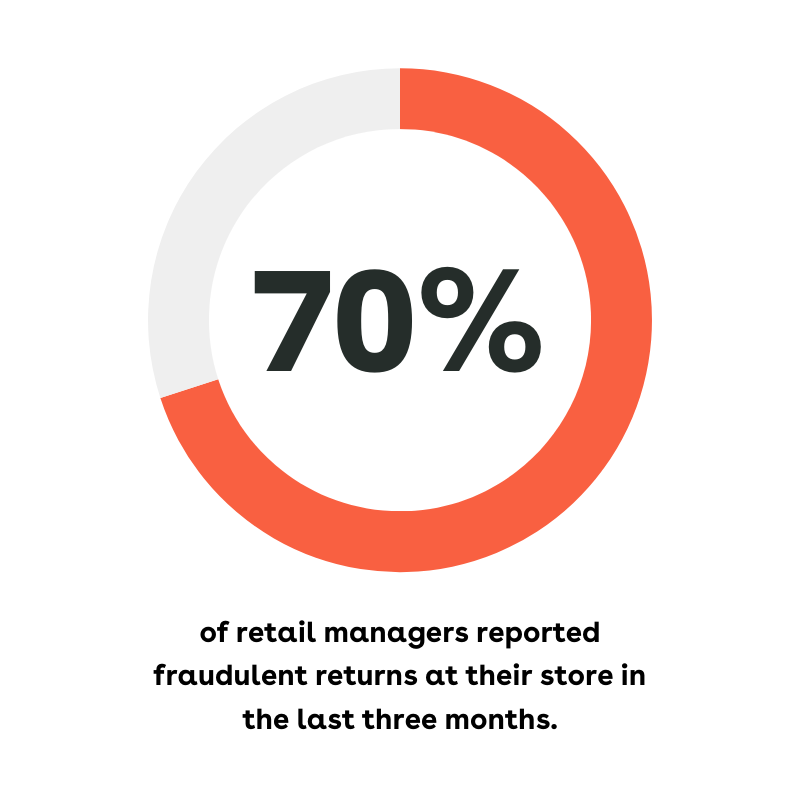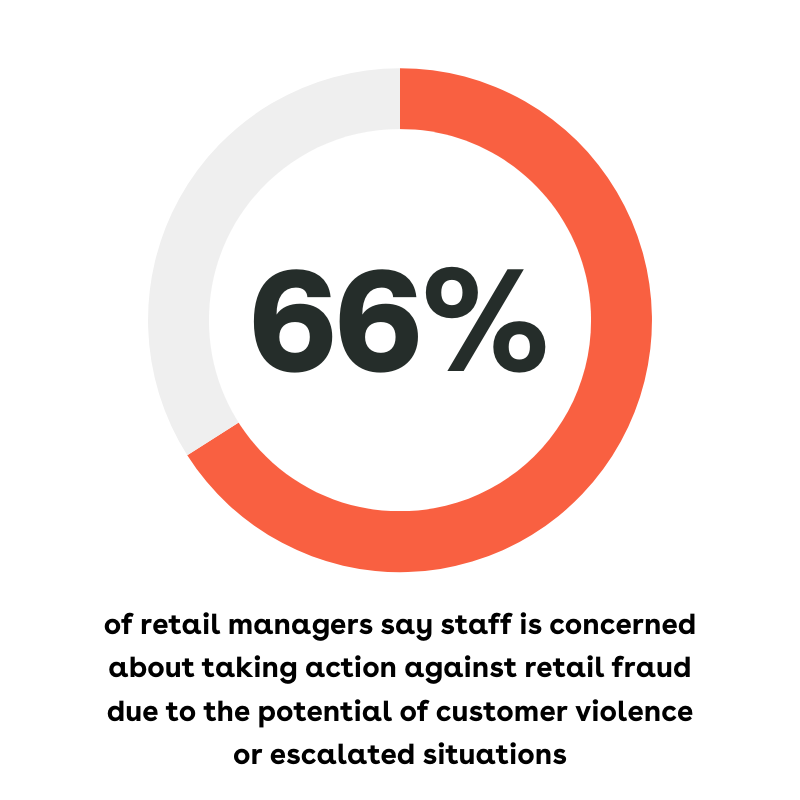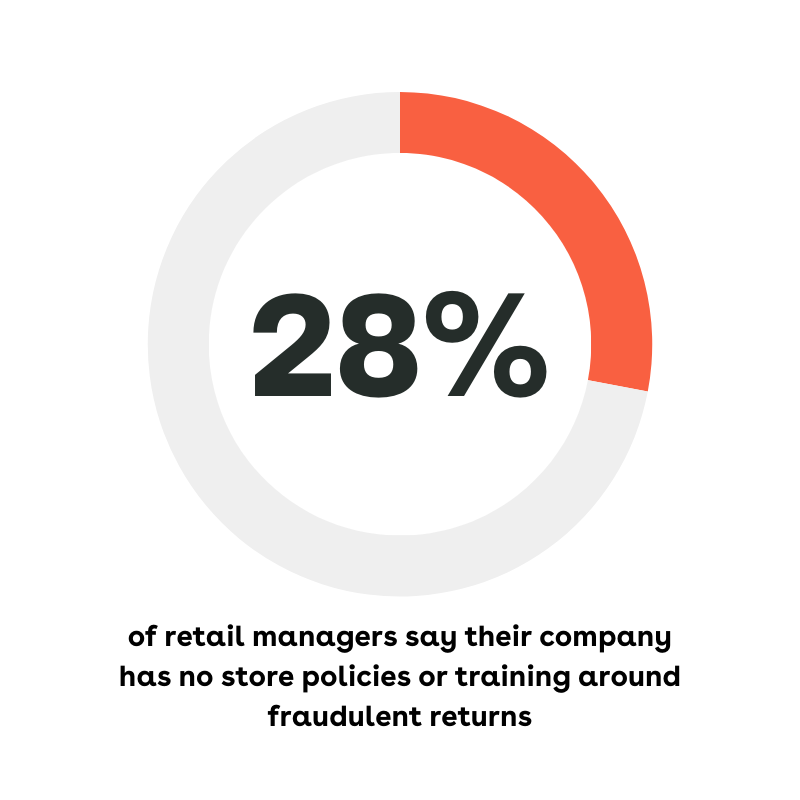We asked 300 retail managers about return fraud. Here’s what we learned.
Return fraud. Return abuse. Call it what you will, it’s having a serious impact on retailers’ bottom lines. According to a recent report by NRF and Appriss Retail, return abuse impacted 13.7% of returns in 2023. And considering retailers took back a whopping $743B in returns last year, that’s over $100B lost to return fraud.
“The returns picture is changing across all of retail,” notes the report. “Although it appears returns rates are dropping, fraud and abuse continue to grow as shoppers take advantage of policy, process, and system gaps within retailers.”
To explore the current state of return fraud, we polled 300 retail managers. Here’s what we learned:
Return fraud is an urgent issue across the retail industry
81% of retail managers surveyed said that return abuse is a growing issue in the industry, and 70% reported fraudulent returns at their store in the last three months. Other notable findings include:
- 64% of managers said their staff has seen a growing increase in return fraud in the last 30 days.
- 36% of managers are encountering fraudulent returns on a weekly basis—and 18% encounter fraudulent returns daily.
- 44% of retail managers believe that fraudulent returns significantly, or very significantly, impact their store’s revenue.
- The most common type of fraud managers are experiencing are: returning stolen items (27%), returning used items (20%) and receipt fraud (20%).

Frontline managers are concerned about lack of training and policies on return fraud
Managers say that a lack of training and policies directly impacts their ability to understand, detect and handle return fraud. 33% of managers said their staff isn’t properly trained on how to detect or prevent fraud, and 28% said their staff isn’t trained on what to do after fraudulent returns occur. Other notable findings include:
- 29% of managers said that understanding and identifying instances of fraud is their staff’s biggest challenge in managing fraudulent returns.
- 23% of managers said their store has been penalized or reprimanded for incorrectly spotting a fraudulent return.
Staff are also concerned about escalating situations by addressing fraudulent returns

While theft, violence and organized retail crime continue to disrupt operations, employee safety is an ongoing concern. We already know that 85% of frontline managers believe theft and customer violence are growing issues in the industry, and nearly half report that they’ve had workers quit due to concerns around safety.
So when it comes to return fraud, 66% of retail managers say their staff is concerned about taking any action against fraudulent returns due to the potential of customer violence or escalated situations. Furthermore, 27% of managers believe fear of customer violence is their staff’s biggest challenge in managing return fraud.
Implementing effective anti-fraud training is critical to reducing the impact of return fraud
The policies and training around return fraud aren’t consistently in place. In fact, 28% of managers say their company has no store policies or training around fraudulent returns, and 45% said their company has not increased training this year for employees around handling returns despite the increase in fraudulent returns. Other notable findings include:
- 48% of managers said their company hasn’t updated its policies or training around fraudulent returns in a year or longer.
- Only 16% of managers said that their company’s current return policies and training are “very effective” in preventing fraud.

These findings unlock a massive opportunity for retailers willing to invest in the right training and store policies to help associates properly handle instances of return fraud and return abuse. By implementing clear store policies on return fraud, and training staff on these policies, retailers can substantially mitigate the cost and disruption of this fraud.
—
In February 2024, Axonify surveyed 300 retail frontline managers above the age of 18 in the U.S. using the online insights platform Pollfish. These managers work for companies with more than 200 workers.